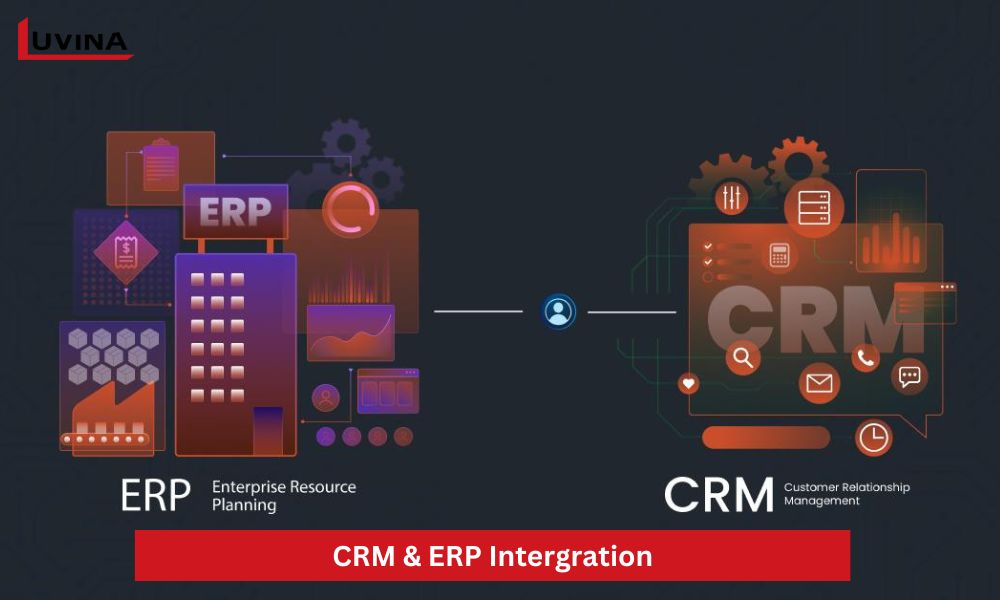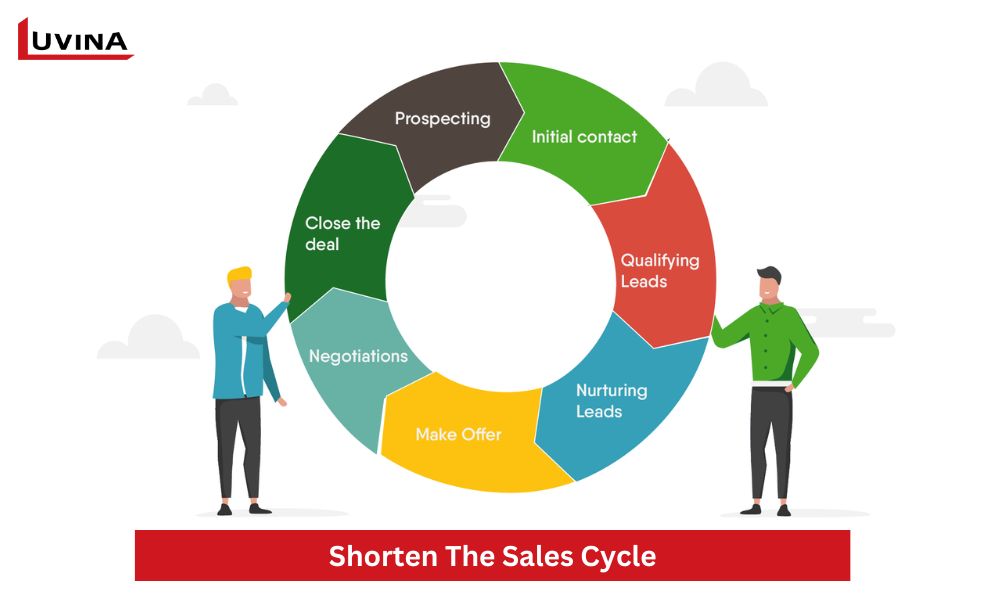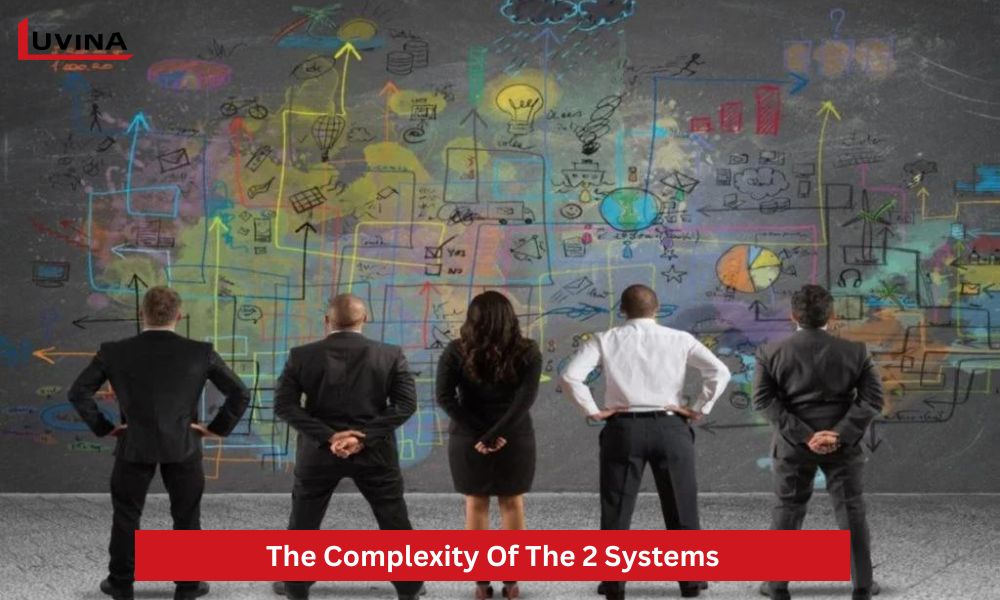CRM and ERP integration could be the perfect tech solution if your business seeks customer satisfaction. Linking these two software systems can enhance productivity and the customer experience and boost sales.
So, what are ERP and CRM software? In the following article, let’s explore this technological solution, its benefits, and the challenges businesses may face when integrating CRM and ERP.
What is CRM and ERP integration?
ERP software is familiar to eCommerce businesses. It provides a centralized data platform for all departments, such as HR, accounting, supply chain, etc. On the other hand, CRM platforms focus more on customer management tasks, greatly assisting sales and marketing teams.

Large businesses need both software because each has its own specialized features. Hence, ERP and CRM software solutions were developed.
CRM and ERP integration involves connecting and synchronizing your ERP software with your CRM system. ERP and CRM software facilitate the seamless sharing of information between the two systems, ensuring consistency and complete automation, thereby creating a unified data platform for the business.
The Benefits of CRM-ERP Integration
One is customer relationship management, and the other is a centralized database for all business processes. CRM and ERP integration bring the greatest benefits to businesses. Some prominent benefits of ERP CRM development include:
1. Improving sales accuracy
ERP and CRM development will create an integrated system that gives the sales team a comprehensive view of real-time inventory status. Based on this data, the sales team can generate accurate quotes, adjust prices flexibly, and cross-sell or upsell appropriate products to customers.
2. Shortening sales cycles
In addition to ensuring more accurate sales processes, CRM & ERP software also speed up the sales cycle. Typically, manual data sharing can slow down processes and pose the risk of discrepancies, leading to mistrust between customers and partners. Meanwhile, ERP and CRM software automate all processes, minimizing data discrepancies and eliminating unnecessary steps.

3. Increasing customer satisfaction
CRM ERP development creates a centralized platform where relevant departments can access and update all customer information, maintaining customer relationships even after sales. As a result, customer satisfaction increases, and business processes are also improved.
4. More detailed information and clearer predictions
With CRM and ERP integration, sales data and customer information are stored and logically organized on a unified platform. Sales teams can access this data to update customer information and accurately predict sales figures. Detailed information leading to accurate predictions helps businesses avoid making mistakes.
5. Optimizing operational efficiency and profitability
Using two separate systems often leads to duplicate data and difficulty in coordinating information. In contrast, ERP and CRM software serve as the single source of truth for the entire business, saving a significant amount of time and optimizing business operations.
6. Promoting collaboration among departments and employees
CRM and ERP integration help connect employees more effectively and allow them to access a centralized database. Data is continuously shared and utilized in real time. All employees can access information whenever needed.

Typical Issues and Troubleshooting
Implementing ERP or CRM systems is already a complex task, and CRM and ERP integration adds another layer of complexity. During this process, businesses are likely to encounter several challenges, including:
1. Lack of IT resources
ERP CRM development is a complex process that requires strong IT resources and tools, especially for large-scale projects. Without sufficient resources, CRM and ERP integration projects may encounter various issues during implementation, leading to delays.
Solution: Collaborate with service providers specializing in CRM and ERP integration to access the strongest IT resources and tools. These partners will also assist businesses with any technical issues during the implementation process. Especially for CRM ERP for small businesses, it is advisable to seek support from experienced partners.
2. The complexity of CRM and ERP systems
ERP and CRM are 2 separate ecosystems with various distinct features and integrated tools. Each system requires specific expertise to integrate with external functionalities within the ecosystem. Therefore, CRM and ERP development is far from straightforward.
Solution: Create a detailed integration plan, outline objectives, set time milestones, and allocate resources reasonably. Proper planning will clarify goals, minimize confusion, and ensure the project progresses on schedule.

3. The inconsistency of data and the existence of data silos
When data is collected from different systems and integrated, it often leads to duplicates or discrepancies. These data silos also prevent businesses from fully utilizing their systems.
Solution: Map the data fields between systems to ensure data compatibility during appropriate processes. Data should also be converted to the appropriate format. Mapping and converting data will help prevent errors and ensure a seamless data transmission process.
4. Customizing legacy code integrations
Some companies have customized legacy code integrations. These customizations can reduce the system’s scalability.
Solution: Standardize data formats and processes to facilitate smoother integration, ensuring consistency and scalability. Divide integrations into modules to streamline management and expansion.
Conclusion
CRM and ERP integration may not be easy to implement, but it can elevate your business to new heights by providing a strong competitive advantage. Through this article, we hope you now have a clearer understanding of the benefits of CRM ERP development and some insight into the challenges you may face when implementing the integration of these two systems.

To minimize risks during CRM and ERP integration, consider partnering with the expert team at Luvina. Luvina is one of the leading partners, utilizing quality ERP solutions such as GRANDIT, DYNAMICAX, WORKDAY ERP, SAP, and ORACLE. Luvina’s solutions allow businesses to seamlessly connect and integrate with the applications and systems needed to develop customer relationships and improve business processes.
Collaborate with Luvina today to bring new energy to your business!
Related Posts:









Read More From Us?
Sign up for our newsletter
Read More From Us?
Sign up for our newsletter